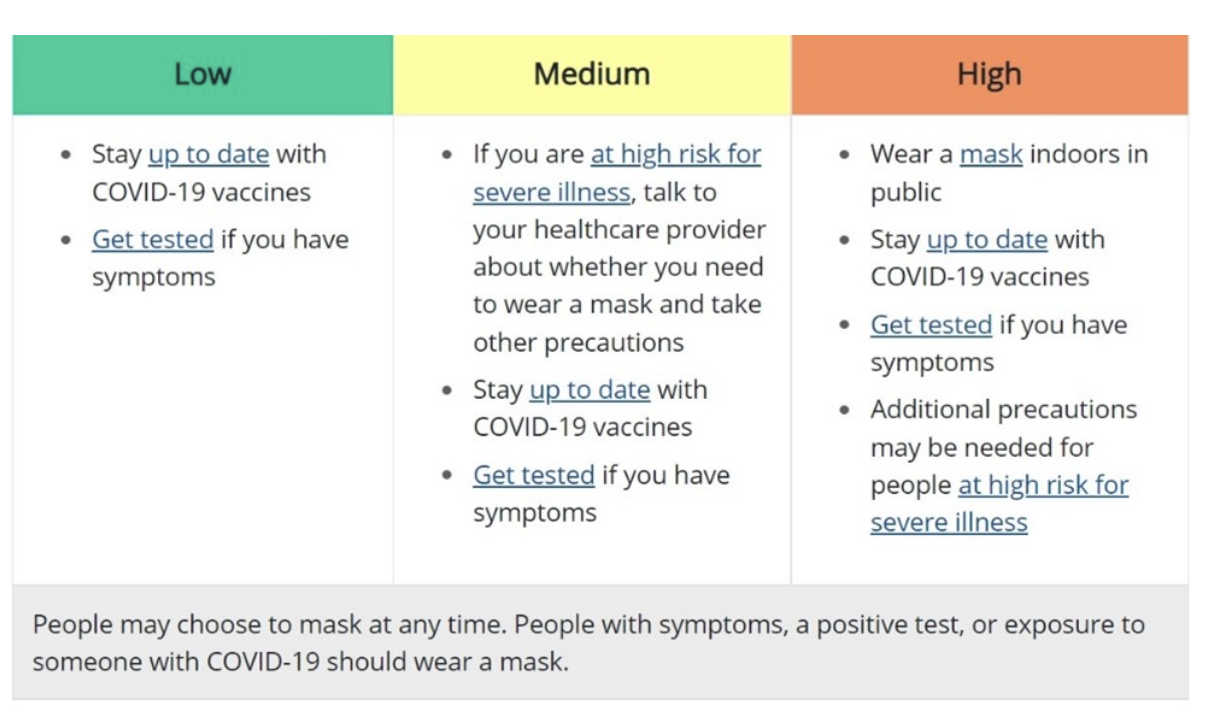- Submit Nominations for Partnership for Quality Measurement (PQM) Committees
- Unleashing Prosperity Through Deregulation of the Medicare Program (Executive Order 14192) - Request for Information
- Dr. Mehmet Oz Shares Vision for CMS
- CMS Refocuses on its Core Mission and Preserving the State-Federal Medicaid Partnership
- Social Factors Help Explain Worse Cardiovascular Health among Adults in Rural Vs. Urban Communities
- Reducing Barriers to Participation in Population-Based Total Cost of Care (PB-TCOC) Models and Supporting Primary and Specialty Care Transformation: Request for Input
- Secretary Kennedy Renews Public Health Emergency Declaration to Address National Opioid Crisis
- Secretary Kennedy Renews Public Health Emergency Declaration to Address National Opioid Crisis
- 2025 Marketplace Integrity and Affordability Proposed Rule
- Rural America Faces Growing Shortage of Eye Surgeons
- NRHA Continues Partnership to Advance Rural Oral Health
- Comments Requested on Mobile Crisis Team Services: An Implementation Toolkit Draft
- Q&A: What Are the Challenges and Opportunities of Small-Town Philanthropy?
- HRSA Administrator Carole Johnson, Joined by Co-Chair of the Congressional Black Maternal Health Caucus Congresswoman Lauren Underwood, Announces New Funding, Policy Action, and Report to Mark Landmark Year of HRSA's Enhancing Maternal Health Initiative
- Biden-Harris Administration Announces $60 Million Investment for Adding Early Morning, Night, and Weekend Hours at Community Health Centers
Pennsylvania Adds a New Health Information Organization
Pennsylvania’s health information exchange network now has a new health information organization (HIO). The Lehigh Valley Health Network has successfully completed the requirements for certification as a Pennsylvania eHealth Partnership Uniform Participant in the Pennsylvania Patient and Provider Network, or P3N. Read more.
Duquesne University in Pittsburgh Breaks Ground for Osteopathic Medical School
 Duquesne University in Pittsburgh broke ground for the new Duquesne College of Osteopathic Medicine (DCOM) on March 1. Among the speakers was Jerome Gloster, MD, CEO of FQHC Primary Care Health Services (PCHS). Dr. Gloster spoke about how PCHS has experienced Duquesne’s dedication to serving the community through their partnership with the university’s Duquesne Center for Integrated Health asthma program for children and teenagers. PCHS, East Liberty Family Health Care Center, and North Side Christian Health Center are among the healthcare organizations that will partner with DCOM to provide rotations for third- and fourth-year medical students. John Kauffman, DO, the founding dean of DCOM, said an emphasis will be placed on serving underserved communities. He anticipates that 50% of each class of residents will go into primary care. The $151 million projects is projected to take two years with the first class of students starting in 2024.
Duquesne University in Pittsburgh broke ground for the new Duquesne College of Osteopathic Medicine (DCOM) on March 1. Among the speakers was Jerome Gloster, MD, CEO of FQHC Primary Care Health Services (PCHS). Dr. Gloster spoke about how PCHS has experienced Duquesne’s dedication to serving the community through their partnership with the university’s Duquesne Center for Integrated Health asthma program for children and teenagers. PCHS, East Liberty Family Health Care Center, and North Side Christian Health Center are among the healthcare organizations that will partner with DCOM to provide rotations for third- and fourth-year medical students. John Kauffman, DO, the founding dean of DCOM, said an emphasis will be placed on serving underserved communities. He anticipates that 50% of each class of residents will go into primary care. The $151 million projects is projected to take two years with the first class of students starting in 2024.
Health Care Headlines, Business News & Trends
CDC Updates COVID-19 Masking and Monitoring Guidance
The Centers for Disease Control and Prevention (CDC) recently updated its framework to monitor the level of COVID-19 in communities. CDC leaders also announced that this data will inform recommendations on prevention measures like masking. They have updated their masks webpage to provide guidance based on the COVID-19 Community Level and personal risk factors. Read the full media briefing transcript.
Race and Ethnicity Matter in Accessing Medical Care
The Medicaid and CHIP Payment and Access Commission (MACPAC) recently released an issue brief on Experiences in Accessing Medical Care by Race and Ethnicity. The brief uses data from the 2015-2018 National Health Interview Survey (NHIS) to assess Medicaid members’ access to care by race and ethnicity. Notably, the study found that Black, Hispanic, and Asian Medicaid members had significantly lower rates of receiving some preventive health screenings as compared to white non-Hispanic members and that Black and Hispanic Medicaid members were less likely than white non-Hispanic members to receive primary care and mental health care visits.
$88 Billion in Medical Debt on Consumer Credit Reports
Consumer credit reports contained $88 billion in medical debt as of June, a problem the federal agency that enforces financial protection rules vows to crack down on. Medical debt is far and away from the most common type of liability on credit reports. On Tuesday, Consumer Financial Protection Bureau (CFPB) officials questioned whether it belongs there at all. As of last year, 58% of all third-party debt collections were for medical debt, the agency determined in a new report. The CFPB found that about 20% of U.S. households owe a medical debt, which appears on 43 million credit reports.
Congress Turns Their Attention to Behavioral Health
In February, Senate and House Committees held a number of hearings on behavioral health, including two Senate Finance Committee hearings on youth mental health, a Senate HELP Committee hearing on mental health and substance use, a House Energy and Commerce Committee hearing on mental health, and two House Ways and Means Committee hearings on the mental health crisis, substance use, and suicide. Senate Finance Chair Wyden (D-OR) reportedly hopes to introduce a broad bipartisan package this summer focused on the integration of primary and mental health care, telehealth, parity, and children’s behavioral health.
Pennsylvania Governor Adds New Qualifying Life Event for Pennie Coverage
Gov. Tom Wolf this week announced that Pennsylvania’s state-based health insurance marketplace, Pennie, has added a new qualifying life event to allow low-income Pennsylvanians the ability to enroll in health insurance throughout the year. This new qualifying life event will allow Pennsylvanians with an annual household income equal to or below 150% of the federal poverty level to shop and enroll in health insurance through Pennie. Financial assistance, which nearly 90% of the almost 375,000 Pennie customers receive, is also available. Pennsylvanians enrolling during 2022 can also benefit from the increased subsidies provided by the American Rescue Plan, which has changed the affordability of health coverage across the nation.
To receive this new qualifying life event through Pennie, new customers will need to visit pennie.com, click “Get Covered” and apply. If the customer meets the income qualifications, a Special Enrollment Period will automatically open. Once the Special Enrollment Period opens, the customer will have 60-days to shop and enroll in a healthcare plan through Pennie. Currently, this opportunity is only available for those currently not receiving health coverage through Pennie. Beginning June 2022, existing Pennie customers whose income is lower than or equal to the 150% federal poverty level can update their application and change their current plan using this qualifying life event.
The Department of Veteran Affairs Creates a Graduate Medical Education & Residency Pilot Program

If finalized, a proposed rule from the U.S. Department of Veterans Affairs (VA) would place medical residents in existing or new residency programs and reimburse certain costs associated with graduate medical education. The VA is considering factors for determining clinical needs in certain areas, i.e., the ratio of veterans to VA providers, and for placement of residents in facilities outside of the VA. This will include an evaluation of the range of clinical specialties of VA and non-VA providers in underserved rural and tribal communities. A future request for proposal will announce opportunities for placement of residents at certain underserved VA facilities as well as certain Rural Health Clinics and Federally Qualified Health Centers. By statute, the pilot program prioritizes the placement of residents in Indian Health Service facilities, and Indian tribal or tribal organization facilities.

